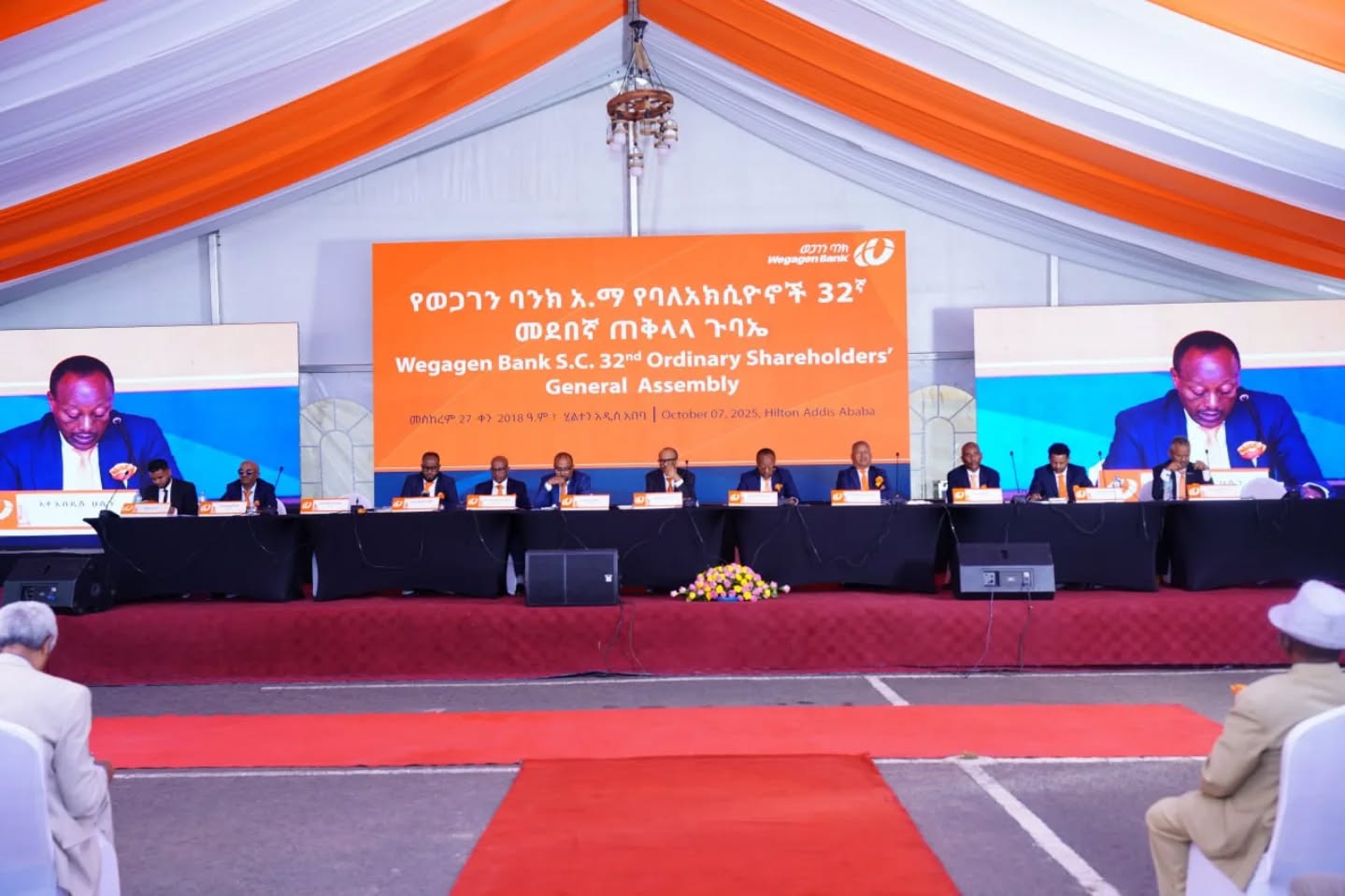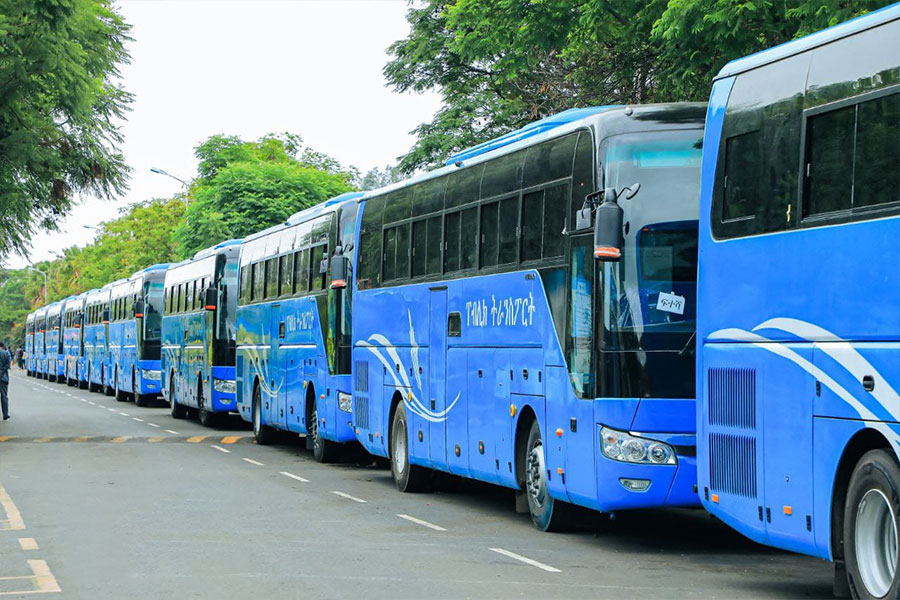
Apr 3 , 2021
By HAWI DADHI
The multi-modal transport sector will soon be open to private companies after authorities finalise a bill they hope will introduce liberalisation, thereby opening a long-closed industry to the private sector.
Experts at the Logistics Transformation Office under the Ministry of Transport have drafted the bill, according to people familiar with the progress. This follows after Dagmawit Moges, minister of Transport, invited private domestic and foreign investors two weeks ago into the sector as part of the administration's 10-year blueprint for economic growth.
Freight forwarding and shipping, domestic air transport, cross-country public transport, and urban mass transport are among the areas she urged leaders of the private sector to consider for prospective investment. The multi-modal transport sector has been closed as the sole operator was the state-owned Ethiopian Shipping & Logistics Service Enterprise (ESLSE), which was established in 1964.
Experts assert that the state's monopoly has inhibited the sector from growing as the Enterprise does not operate in a competitive environment in the pricing and quality of services. The ESLSE has often been criticised for setting exaggerated price charges, taking advantage of a captive market.
The draft bill primarily details the licensing and quality assurance process for new entrants.
The administration wants to see the number of private investors entering the sector limited to five, with possible revision upon the analysis of performance, according to people who have seen the first draft. However, the transport sector's 10-Year Perspective Plan states that Ethiopia will have six private multi-modal transport operators in a decade. Businesses incorporated as share companies, private limited corporations, joint ventures between local and foreign investors, and state enterprises will be allowed to enter the sector.
The Ministry will announce open and competitive bidding after the directive goes through the legislative process.
To be selected, prospective companies are required to have a minimum paid-up capital of 350 million Br, of which 10pc must be liquid and the rest in the form of assets. Selected companies are expected to have 30 cross-country trucks with a carrying capacity of 380 quintals and elect a board of directors whose members each have at least five years of experience in areas relevant to the logistics industry.
Mulugeta Assefa, board chairman of MACCFA Freight Logistics Plc, a private company that has been in the industry for a quarter of a century, has had his eyes on the multi-modal transport sector. Although he views the initiative to liberalise the sector positively, Mulugeta believes the new requirements set for entrants are uninviting and difficult to attain.
"I doubt there will be many private companies who would have the capacity to meet the requirements," he told Fortune.
These stringent requirements are in place to ensure the companies are trustworthy and capable of handling sophisticated logistics services, according to a person close to the issue.
The drafters hope that even though the amount required in capitalisation is high, domestic companies can form joint ventures with foreign investors.
The limit on the number of entrants into the industry has also not been received well by Mulugeta. It is merely a way to change the monopoly to five, according to him.
"For actual transformation to happen, competitiveness must be encouraged," Mulugeta said.
Despite such voices of caution from the industry, the bill will be presented to the National Logistics Council, comprising members from the Federal Transport Authority, the ministries of Trade & Industry and Finance, as well as the Ethiopian Freight Forwarders & Shipping Agents Association.
Officials at the Logistics Transformation Office under the Ministry of Transport declined to comment as the drafting process is yet to be finalised. A consultation meeting is to be held this week with stakeholders, the third in a series of consultations.
PUBLISHED ON
Apr 03,2021 [ VOL
22 , NO
1092]

Radar | Aug 28,2021

Fortune News | Aug 13,2022

Fortune News | May 31,2020

Radar | Apr 19,2025

Radar | Mar 19,2022

Fortune News | Aug 14,2021

Fortune News | Oct 20,2024

Radar | Jun 25,2022

Fortune News | Apr 29,2023

Fortune News | Feb 09,2019

Dec 22 , 2024 . By TIZITA SHEWAFERAW
Charged with transforming colossal state-owned enterprises into modern and competitiv...

Aug 18 , 2024 . By AKSAH ITALO
Although predictable Yonas Zerihun's job in the ride-hailing service is not immune to...

Jul 28 , 2024 . By TIZITA SHEWAFERAW
Unhabitual, perhaps too many, Samuel Gebreyohannes, 38, used to occasionally enjoy a couple of beers at breakfast. However, he recently swit...

Jul 13 , 2024 . By AKSAH ITALO
Investors who rely on tractors, trucks, and field vehicles for commuting, transporting commodities, and f...

Oct 4 , 2025
Eyob Tekalegn (PhD) had been in the Governor's chair for only weeks when, on Septembe...

Sep 27 , 2025
Four years into an experiment with “shock therapy” in education, the national moo...

Sep 20 , 2025
Getachew Reda's return to the national stage was always going to stir attention. Once...

Sep 13 , 2025
At its launch in Nairobi two years ago, the Africa Climate Summit was billed as the f...